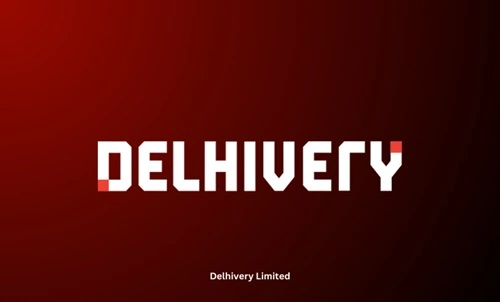Delhivery, one of India’s leading logistics and supply chain companies, has redefined how goods are transported, delivered, and managed across the country. Founded in 2011 by Sahil Barua, Mohit Tandon, Bhavesh Manglani, Suraj Saharan, and Kapil Bharati, Delhivery initially started as a hyperlocal delivery service for e-commerce companies. Over the years, it has grown into a full-stack logistics provider, offering end-to-end supply chain solutions to businesses of all sizes.
This article delves into Delhivery’s business model, revenue streams, and the strategies that have propelled it to the forefront of India’s logistics industry.
Overview of Delhivery’s Business Model

Delhivery operates on a B2B (Business-to-Business) and B2C (Business-to-Consumer) logistics model, providing technology-driven supply chain solutions. Its platform is designed to handle the complexities of India’s diverse and dynamic logistics market, serving industries like e-commerce, retail, manufacturing, and FMCG.
Key Features of Delhivery’s Business Model:
- Full-Stack Logistics Solutions:
- Delhivery offers services across the supply chain, including parcel transportation, warehousing, freight services, and last-mile delivery.
- Asset-Light Model:
- The company uses an asset-light model by partnering with third-party providers for fleets and warehouses, enabling scalability while minimizing capital investment.
- Technology-Driven Operations:
- Delhivery leverages advanced technologies like AI, machine learning, and big data analytics to optimize logistics processes and enhance customer experience.
- Integrated Solutions:
- The platform combines multiple logistics services, such as warehousing, freight, and last-mile delivery, into a seamless experience for businesses.
How Does Delhivery Earn Money?
Delhivery generates revenue through multiple streams, catering to businesses across industries. Here’s how the company earns money:
a. Parcel Delivery Services
- Delhivery earns a significant portion of its revenue from parcel delivery services, which include:
- Last-Mile Delivery: Delivering e-commerce orders, packages, and documents to customers.
- Reverse Logistics: Managing product returns for e-commerce platforms.
- Same-Day Delivery: Premium service for time-sensitive shipments.
- The company charges clients (businesses and e-commerce platforms) based on weight, distance, and delivery time.
b. Freight Services
- Delhivery provides truckload and less-than-truckload (LTL) freight services to businesses. This includes:
- Intercity Freight: Moving goods between cities using trucks and air freight.
- Cross-Border Logistics: Facilitating international shipments.
- Revenue is generated through contracts with manufacturers, exporters, and distributors for bulk shipments.
c. Warehousing and Fulfillment
- The company operates a network of warehouses and fulfillment centers to store and manage inventory for businesses.
- Revenue comes from:
- Storage Fees: Charged per square foot or cubic meter of space.
- Order Fulfillment Services: Picking, packing, and dispatching orders on behalf of businesses.
d. Supply Chain Solutions
- Delhivery offers customized supply chain management (SCM) solutions, including planning, inventory management, and transportation.
- Large enterprises pay for these value-added services to streamline and optimize their supply chains.
e. Cross-Border Logistics
- Delhivery facilitates international trade by providing customs clearance, cross-border shipping, and international freight services.
- Clients pay for the end-to-end management of imports and exports, including documentation and compliance.
f. Technology Solutions
- Delhivery provides access to its proprietary logistics technology to businesses. These solutions include:
- Real-Time Tracking: Enabling businesses to track shipments.
- Data Analytics: Insights into supply chain performance.
- APIs for Integration: Allowing businesses to integrate Delhivery’s platform into their own systems.
g. White-Label Solutions
- Delhivery offers white-label logistics services, where it manages logistics under the client’s brand. Businesses pay for these tailored solutions, particularly in retail and e-commerce.
h. Ad Hoc and Specialized Services
- Delhivery provides niche services like:
- Temperature-Controlled Logistics: For perishable goods like food and pharmaceuticals.
- Project-Based Logistics: For one-time large-scale projects, such as events or campaigns.
Why Delhivery’s Model Works
Delhivery’s business model succeeds because it addresses key pain points in India’s logistics landscape, including inefficiencies, high costs, and last-mile delivery challenges. Here’s why it works:
a. Comprehensive Offerings
- Delhivery covers the entire logistics value chain, providing a one-stop solution for businesses.
b. Asset-Light Strategy
- By outsourcing fleet and warehouse operations, Delhivery maintains flexibility, reduces capital expenditure, and scales efficiently.
c. Technology-Driven Approach
- Advanced technologies like AI, machine learning, and predictive analytics optimize routes, reduce delivery times, and enhance customer satisfaction.
d. Focus on E-Commerce
- Delhivery capitalizes on India’s booming e-commerce market, partnering with major platforms like Amazon, Flipkart, and Myntra to handle their logistics.
e. Geographic Reach
- Delhivery has built an extensive network, covering over 18,000 pin codes across India. This wide reach makes it an attractive partner for businesses targeting Tier 2 and Tier 3 cities.
Financial Performance
Delhivery’s strong business fundamentals are reflected in its financial performance:
Revenue Growth
- The company’s revenue has consistently grown, surpassing ₹7,000 crores in FY 2023, driven by increased demand for e-commerce and supply chain solutions.
Profitability
- While Delhivery has yet to achieve consistent profitability, its focus on optimizing costs and expanding high-margin services has improved its financial health.
Funding and Valuation
- Delhivery raised significant funding from investors like SoftBank, Tiger Global, and Carlyle Group. The company went public in 2022, raising ₹5,235 crores in its IPO.
Challenges and Opportunities
Challenges
- Competition:
- Delhivery faces competition from logistics giants like Blue Dart, DHL, and India Post, as well as new-age players like Ecom Express and XpressBees.
- High Operating Costs:
- The logistics sector involves significant operational costs, including fuel, labor, and technology maintenance.
- Regulatory Hurdles:
- Navigating customs regulations, taxation, and compliance in cross-border logistics can be complex.
Opportunities
- E-Commerce Growth:
- With India’s e-commerce market projected to reach $120 billion by 2026, Delhivery can expand its partnerships and increase volumes.
- Tier 2 and Tier 3 Cities:
- Growing consumer demand in smaller cities offers immense potential for logistics services.
- Technology Integration:
- Investments in AI, blockchain, and IoT can enhance operational efficiency and customer experience.
- Global Expansion:
- Delhivery has the opportunity to grow its cross-border logistics services by expanding its international footprint.
Future Prospects
Delhivery is well-positioned to capitalize on India’s growing logistics and e-commerce sectors. Key focus areas for the future include:
- Strengthening Last-Mile Delivery: Expanding its network and improving delivery speed.
- Scaling Fulfillment Services: Increasing warehouse capacity to cater to more businesses.
- Expanding Cross-Border Logistics: Building capabilities for international trade.
- Sustainability: Investing in eco-friendly practices like electric delivery vehicles and green warehouses.
Conclusion
Delhivery’s business model combines innovation, efficiency, and scalability, making it a leader in India’s logistics industry. By diversifying its revenue streams and leveraging technology, the company addresses the complexities of India’s logistics landscape while maintaining a competitive edge. As e-commerce continues to grow and businesses seek reliable supply chain solutions, Delhivery is poised for long-term success and sustained growth in both domestic and international markets.

